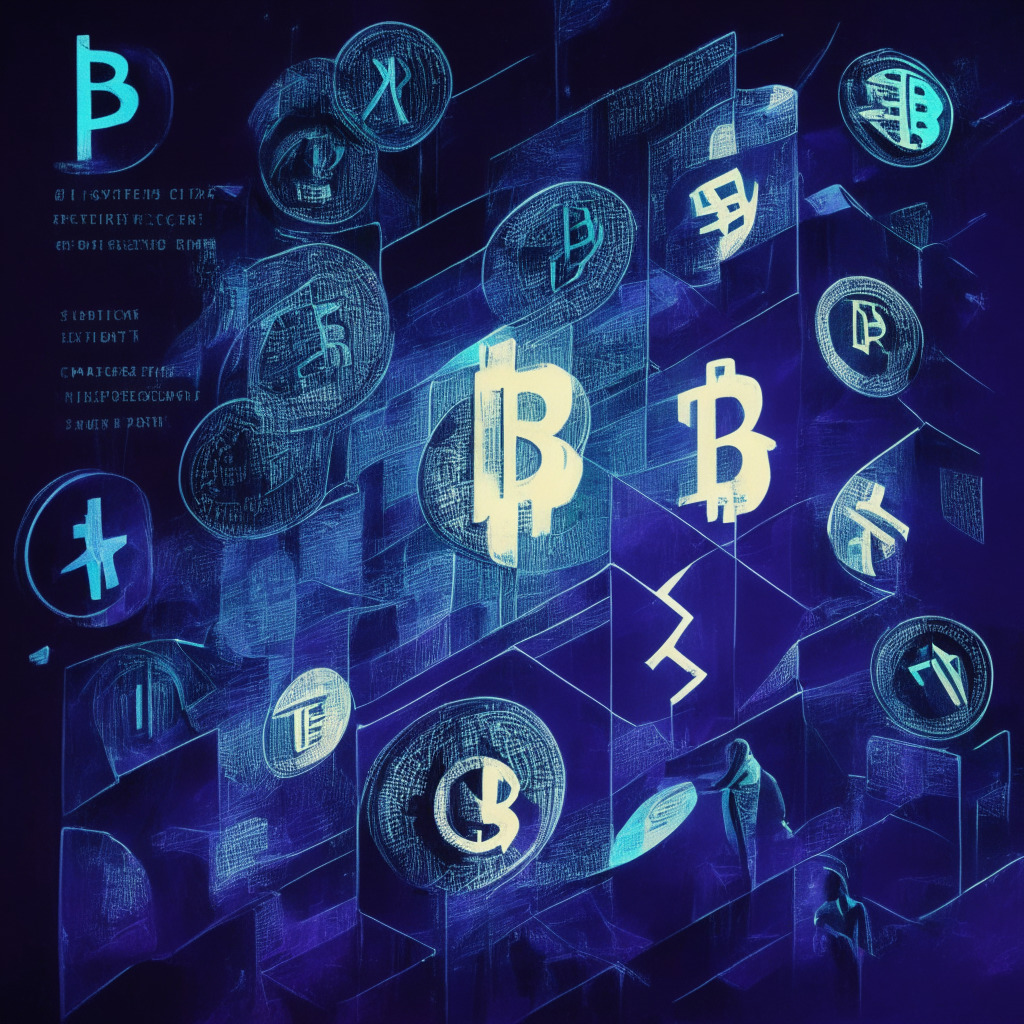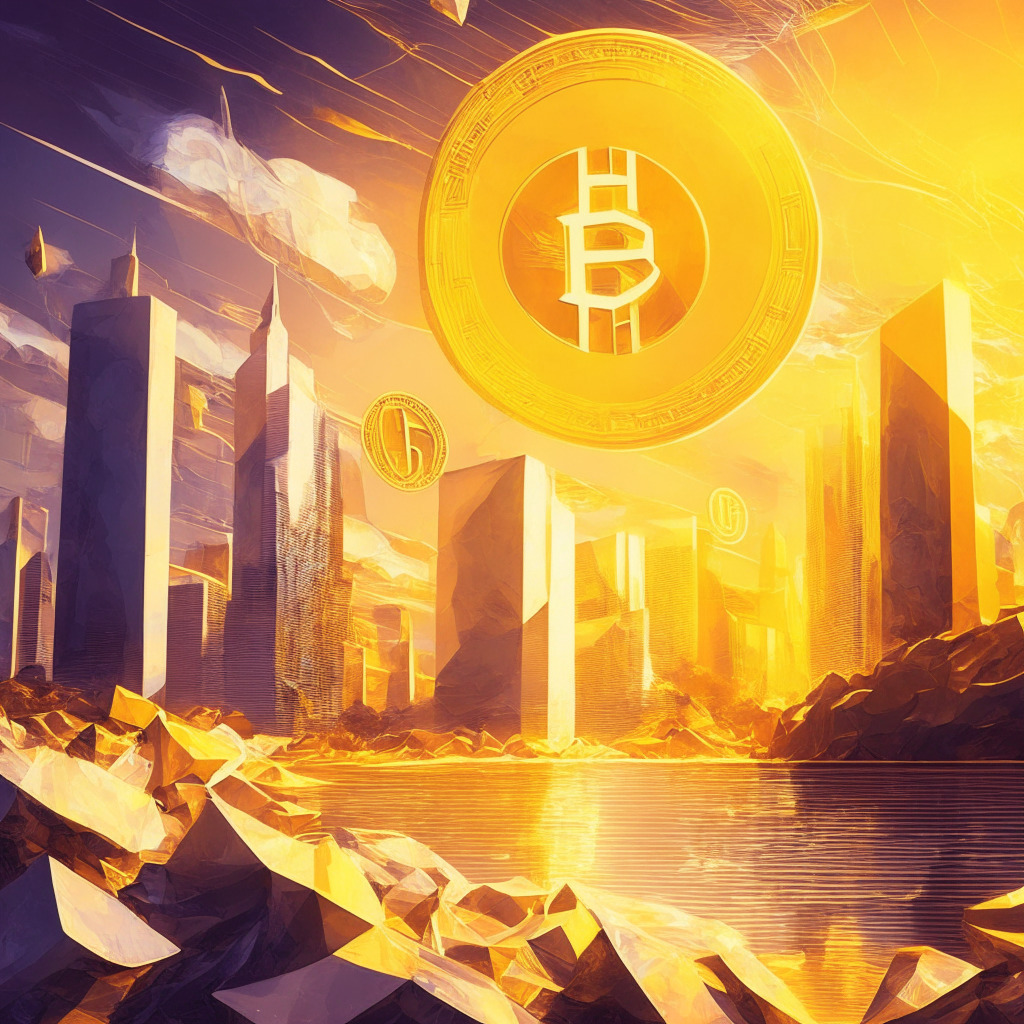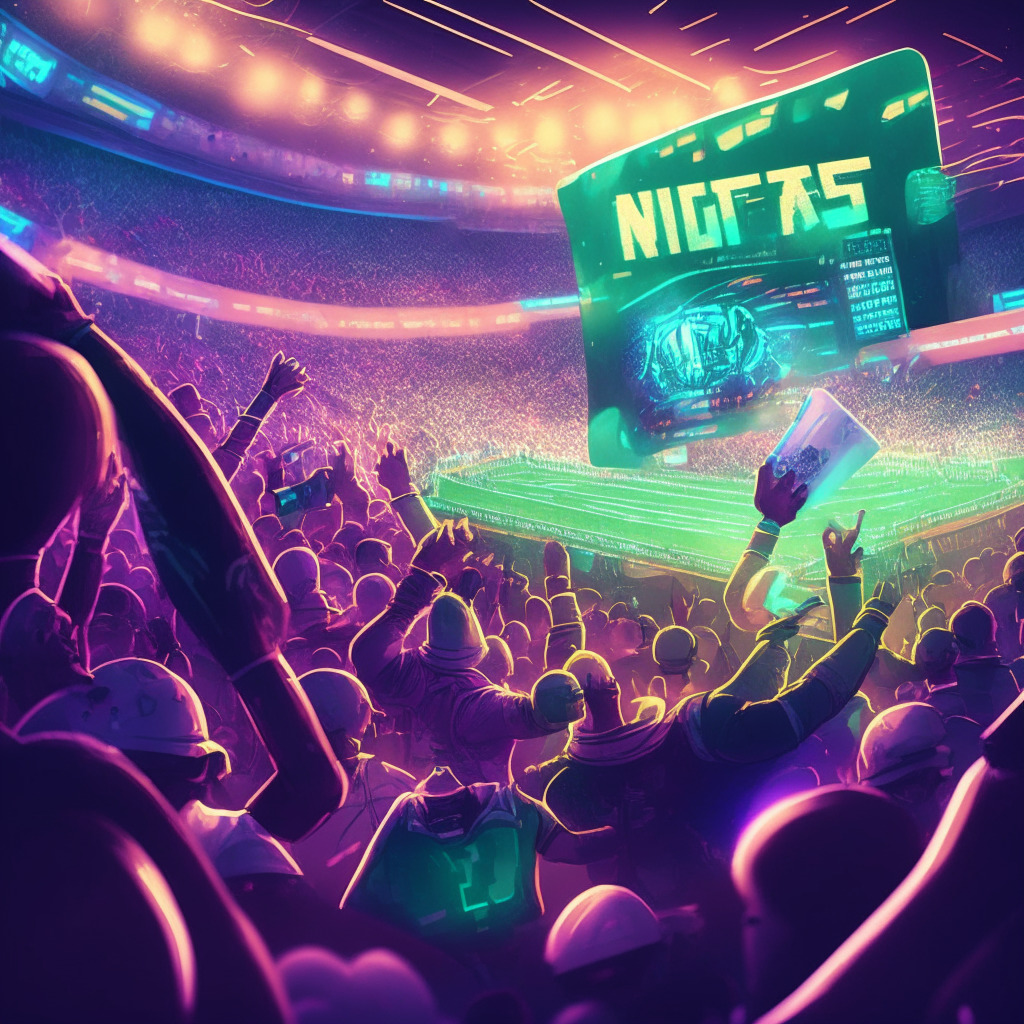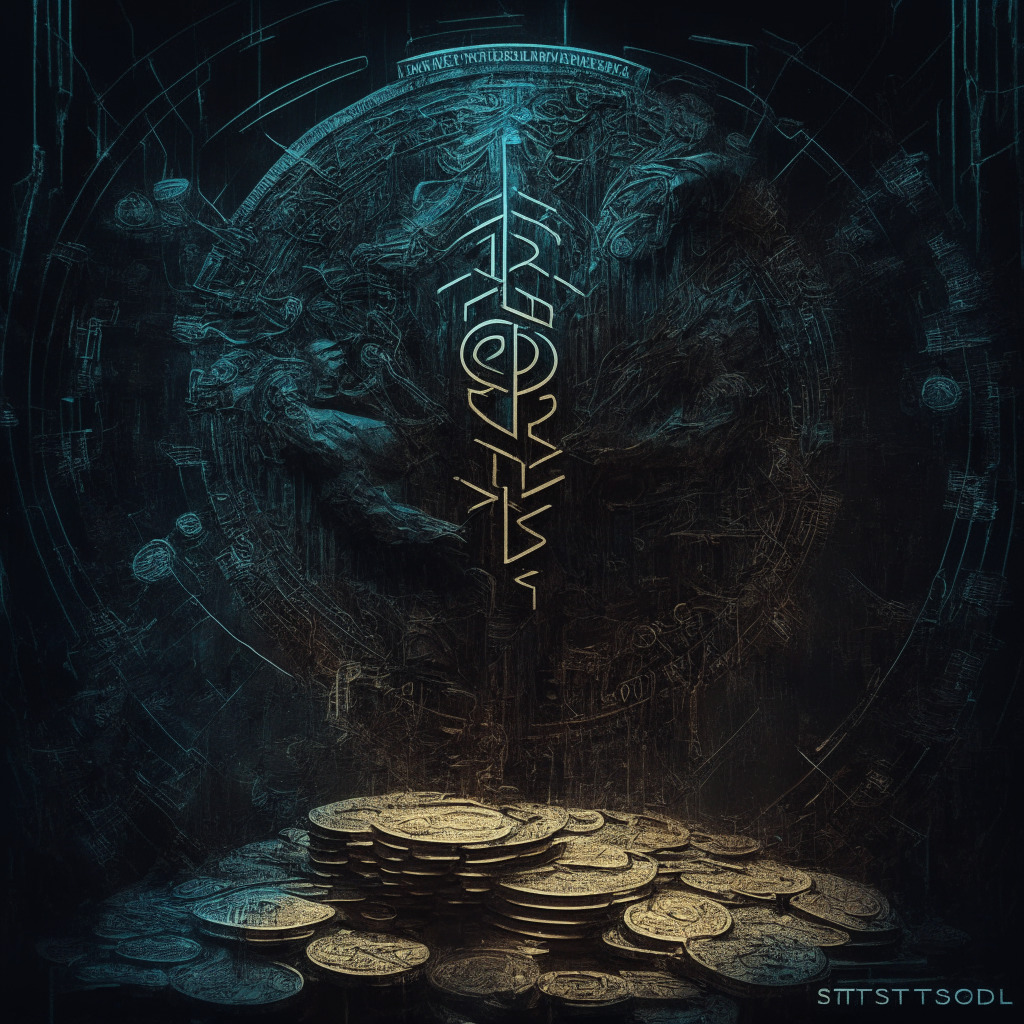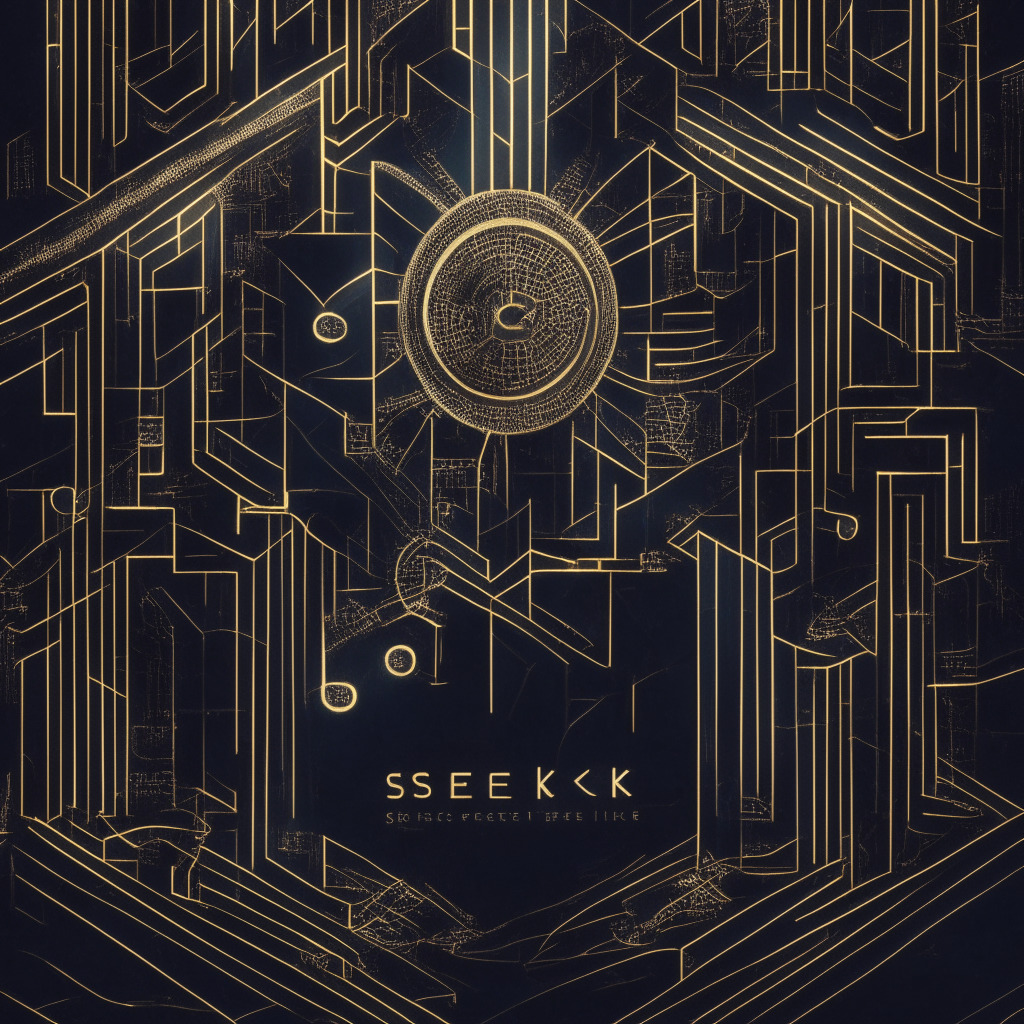The TFS Token native to Fairspin casino, built on blockchain technology, offers transparency, unique earning possibilities through staking programs, and dual compatibility with Ethereum and BNB Smart Chain networks, setting it apart from other iGaming assets.
Category: Technology
German Intelligence Agency Uses NFTs for Crypto Expert Recruitment: Pros, Cons & Future Implications
The German Federal Intelligence Service (BND) initiated a unique recruitment campaign by launching an NFT collection to attract crypto and Web3 experts. The campaign featured a “blockchain challenge,” emphasizing the importance of staying up-to-date with emerging technologies and attracting young talents in the intelligence sector.
Securing Crypto Assets: Exploring Casa’s Multi-Signature Vaults for Bitcoin and Ethereum
Casa introduces an Ethereum vault to its platform, offering multi-signature security for both BTC and ETH, aiming to provide secure custody solutions. This expansion emphasizes the importance of self-custody solutions, fostering trust and growth in the cryptocurrency community.
Gemini Staking Pro Debuts in UK Amid Regulatory Concerns and Ethereum Validator Changes
Gemini has expanded its cryptocurrency staking service, Gemini Staking Pro, to the UK, allowing institutions and high-net-worth individuals to participate in Ethereum staking. However, this service is not regulated by the UK Financial Conduct Authority, raising concerns regarding regulatory oversight and potential legal ramifications.
Tokenization Revolution: Unleashing Potential and Overcoming Challenges in the Digital Age
At the World Token Summit, experts discussed tokenization’s potential to revolutionize industries through benefits like asset fragmentation and digital identities. Despite challenges in technology and KYC processes, advancements in forensic analysis and embedded identity solutions may boost tokenization adoption and transform various sectors, including real estate.
Japan’s Stablecoin Law: Opportunities, Challenges, and the Future of Crypto
Japan’s largest bank, Mitsubishi UFJ Financial Group (MUFG), is engaging in discussions with global stablecoin issuers to mint tokens on its Progmat blockchain platform, following Japan’s new stablecoin law. MUFG’s VP of Product, Tatsuya Saito, emphasized the importance of stablecoins in providing reliable assets for investors during volatile trades and how Japan could potentially become a hub for stablecoin issuance.
Amazon’s $100M Generative AI Fund: Economic Boon or Integration Challenge? Pros & Cons Explored
Amazon Web Services (AWS) has committed $100 million to support generative AI startups through its Generative AI Innovation Center. This technology, capable of producing innovative content, has the potential to add $4.4 trillion annually to the global economy and revolutionize diverse industries.
SAP Tests USDC for Cross-Border Payments: A Glimpse into Blockchain’s Future in Finance
German software giant SAP plans to utilize the US Dollar Coin (USDC) for testing cross-border payments, aiming to resolve complications faced by SMEs. If successful, this could lead to increased Ethereum-based cryptocurrency adoption and highlight the potential of decentralized finance (DeFi) in the payments industry.
FC Barcelona & World of Women NFT: Empowering Women or Just Hype?
FC Barcelona collaborates with NFT project World of Women for the second release of their “Masterpieces” collection, featuring digital artwork “Empowerment” honoring women’s club captain Alexia Putellas. The partnership aims to grow female representation in sports and celebrate inspirational figures, merging sports, art, and blockchain technology.
NFL Rivals Success: Exploring NFT Integration in Mainstream Gaming and Future Implications
NFL Rivals, a free-to-play game from Mythical Games, stands out with its integration of Non-Fungible Tokens (NFTs) as player cards. Garnering over a million downloads and reaching top spots in app stores, the game successfully introduces users to Web3 and NFT concepts, highlighting the potential of NFT integration in mainstream games and shaping the future of crypto gaming.
Navigating Stablecoin Challenges: TrueUSD’s Resilience Amid Prime Trust Troubles
TrueUSD announced its TUSD stablecoin has no exposure to the troubled Prime Trust, which halted all fiat and crypto deposits and withdrawals. Despite a temporary halt in minting activities, TrueUSD maintains multiple partnerships and “USD rails” for continuity of service, highlighting the importance of stablecoin issuers’ resilience to disruptions and the need for transparency and safeguards within the digital asset space.
Crypto Rewards in Mobile Gaming: Exciting Future or Mere Pocket Change?
Bitcoin payments startup Zebedee has launched ZBD, a feature in its Android app that rewards players with small amounts of Bitcoin for playing over 100 eligible mobile games, due to a partnership with advertising platform Adjoe. The integration of cryptocurrency rewards showcases the potential for blockchain technology and cryptocurrency markets to become prominent in the gaming industry, while also raising questions about the long-term financial viability for players.
Merging Giants: Hut 8 Mining & US Bitcoin Corp to Form $990M North American Crypto Powerhouse
Bitcoin miners Hut 8 Mining and U.S. Bitcoin Corp plan to merge, creating a $990 million North American crypto mining giant, Hut 8 Corp. The merger aims to expand revenue, adopt a diversified business model, and capitalize on their financial position.
Jet’s Fixed-Rate Loans: A Game Changer or Niche Market Solution for Crypto Lending?
Solana-based crypto lending platform Jet is relaunching with fixed-rate loans, diverging from competitors’ variable rate products. Jet’s order book design lets borrowers and lenders set terms, resulting in a market-based annualized percentage yield. Jet’s innovation aims to attract Decentralized Autonomous Organizations and on-chain corporations holding idle treasuries.
Google Cloud’s AMLAI: Game Changer for Fintech or Privacy Nightmare? Pros, Cons & Conflicts
Google Cloud’s Anti Money Laundering AI (AMLAI) service, recently tested with HSBC, introduces machine learning for efficient money laundering detection at scale. Despite success, concerns about data security, privacy, and job displacement prompt cautious adoption of AI in the financial sector.
SoftBank CEO’s Emotional AI Connection: Examining ChatGPT’s Impact on Decision-Making & the Future
SoftBank CEO Masayoshi Son shares his emotional connection to ChatGPT, an AI chatbot developed by OpenAI. He envisions a future where technology can mitigate societal ills, such as natural disasters. However, skepticism remains regarding potential risks and downsides of AI dependence, including job displacement and the power dynamics between humans and AI.
Crypto Exchanges’ Internal Trading Teams: A Conflict of Interest or Market Efficiency?
The revelation of Crypto.com’s internal trading team has sparked concerns about potential conflicts of interest. BitMEX CEO Stephan Lutz weighs in, arguing that crypto exchanges should not run internal market makers. The issue highlights the need for transparency and trust in the rapidly evolving digital assets industry to protect investors’ funds and maintain a level playing field.
Volition: The Breakthrough Set to Slash Ethereum Fees and Unlock Micropayments
StarkWare’s innovative product, Volition, aims to drastically reduce Ethereum transaction fees, enabling micropayments comparable to Bitcoin’s Lightning Network. Set to launch with Starknet v0.13.0, Volition promises to provide users more control over transactions and foster wider crypto adoption, particularly in developing economies.
Etherscan’s Code Reader: A Glimpse into Smart Contracts with OpenAI’s Help
Etherscan is beta testing a new feature called Code Reader that allows users to query OpenAI’s large language model for researching solidity smart contracts. This intuitive tool provides valuable insights for developers and non-developers to better understand smart contract operations and functionality. However, it shouldn’t be relied upon in isolation.
CleanSpark’s $9.3M Georgia Facilities: A Step Towards Crypto Mining’s Sustainable Future
CleanSpark has agreed to purchase two ready-to-use mining facilities in Dalton, Georgia for $9.3 million, adding nearly 1 exahash per second capacity to its fleet. This acquisition aims to exceed the company’s year-end target of 16 EH/s, positioning CleanSpark as one of the most power-efficient miners concerning energy-per-hash rate.
Terra Luna Classic’s Proposed Community-Owned Wallet: L2 Support Team and Potential Conflicts
Terra Luna Classic developer community has submitted a proposal for a community-owned wallet managed through their governance system, establishing an L2 team for wallet management. The wallet aims to enhance the Station codebase, improve client wallet diversity, and reduce upgrade and maintenance burdens. However, the proposal faces criticism regarding existing infrastructure and team responsibilities.
Institutional Staking Boom: Balancing Innovation and Compliance
Cryptocurrency staking platform Northstake raised $3 million in funding, showcasing interest in the institutional staking market. With over $80 million in crypto assets staked in 2022, the company focuses on regulation-compliant “vanilla staking products” to minimize anti-money laundering risks. Experts predict a promising future for financial institutions gaining exposure to staking cryptocurrency.
The Impact of NLP and AI on Human-Machine Interaction: Opportunities and Challenges Ahead
The rapid advancements in natural language processing (NLP) and artificial intelligence (AI) have transformed interactions between humans and machines, driving applications in customer service, language translation, and content generation. Despite challenges in data acquisition, professional expertise, and workflow integration, AI continues to permeate various industries, reshaping the digital landscape.
Navigating AI’s Role in Japanese Classrooms: Benefits, Risks, and Data Privacy Concerns
The Japanese Ministry of Education plans to permit limited use of generative AI tools in classrooms, including chatbots like ChatGPT, to facilitate discussions and artistic activities. However, concerns about data privacy, cheating, and copyright infringement require proper attention and regulation. Allowing limited AI usage can serve as a starting point for evaluating its impact on education and policy development.
Vertex Protocol & Wintermute: Redefining Trading Standards in DeFi
Vertex Protocol, a decentralized exchange (DEX) offering spot and derivatives trading for digital assets, has received strategic investment from Wintermute Ventures. The collaboration aims to strengthen ties across various business lines as both parties navigate the rapidly shifting DeFi landscape, potentially redefining trading standards within the digital assets sphere.
Nansen and Kaiko: Uniting Data for Deeper Crypto Market Insights – A Double-Edged Sword?
Nansen and Kaiko’s partnership aims to provide comprehensive insights into transactions across centralized and decentralized exchanges. This collaboration offers a “holistic view” of the cryptocurrency market, allowing users to access combined datasets and make more informed investment decisions. However, the dominance of centralized exchanges raises concerns about their influence on the entire market.
Innovative NFT-Embedded Stamps: Disruption in Philately or Environmental Concern?
The Faroe Islands have introduced “crypto stamps” with nonfungible tokens (NFTs) stored on the blockchain. By blending physical and digital properties, this innovative approach connects stamps to real-time weather data and offers a creative twist to traditional stamp collecting. However, concerns about NFTs’ environmental impact and potential for scams remain.
Algorand’s Upgrade Showdown: Increased Efficiency vs. Potential Risks
Algorand’s proof-of-stake blockchain recently introduced a significant protocol upgrade aimed at speeding up transactions and improving application development efficiency. The most notable enhancement is the block time reduction from 3.8 to 3.3 seconds, fostering competitiveness and user confidence in this ever-evolving space.
CleanSpark’s $9.3M Expansion: Mining Efficiency vs Uncertain Profitability in Bitcoin Industry
Bitcoin mining firm CleanSpark acquires two mining sites in Georgia for $9.3 million, aiming to achieve a 16 exahash per second (EH/s) hash power target by 2023. The acquisition contributes to a 15% increase in computing power, positioning CleanSpark as an energy-efficient miner. However, long-term profitability amidst market challenges remains uncertain.
Decentralized Chess Game Raises $1.5M: Reinventing Tradition or Diluting Identity?
Anichess, a subsidiary of Animoca Brands, secured $1.5 million seed funding to develop a decentralized chess game, promising a community-driven, free-to-play experience with magical spells and unique strategic layers. The game aims for an alpha launch in 2024, with support from investors including GameFi Ventures, Coin Operated Group, and Bing Ventures.
Exploring the Impact of Twitter Bots on Crypto Returns and Market Predictions
A recent study by Yale University researchers found that crypto projects with a higher number of Twitter bot posts tend to have lower long-term returns. Analyzing over a million tweets about 48 cryptocurrencies, the study used an engagement coefficient system to identify artificial activity, revealing that low engagement coefficients correlated with low future returns on these projects.
First Uncleared Crypto Options Trade: Groundbreaking Risk Management Techniques
Singapore-based QCP Capital and Japan-based SBI Alpha Trading executed the first-ever crypto options trade without a clearing house, using bitcoin as collateral on the UK-based Clear Market. The groundbreaking transaction utilized multi-custodian collateral network and innovative risk management techniques to mitigate counterparty risks, aligning with the International Swaps and Derivatives Association’s requirements for uncleared derivatives.



